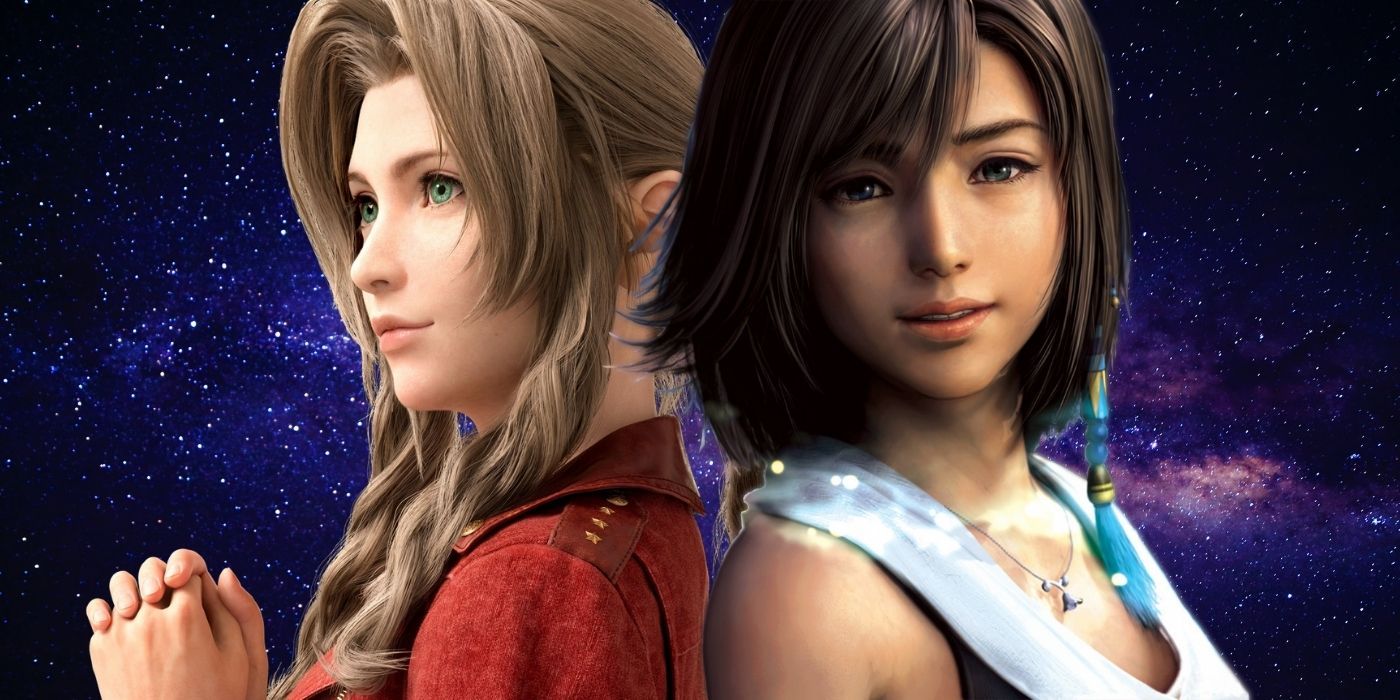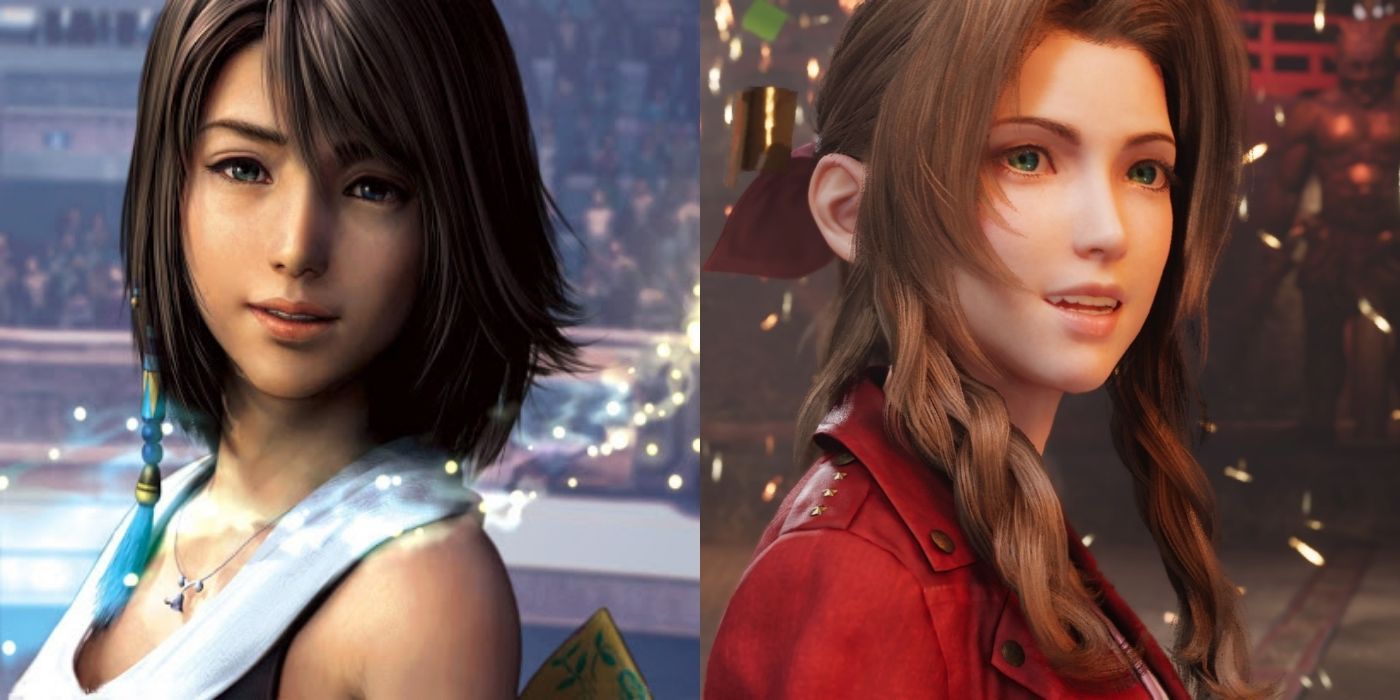
Two beloved heroines of the Final Fantasy franchise, Aerith of Final Fantasy 7 and Final Fantasy 7 Remake and Yuna of Final Fantasy 10, share a lot of similarities, despite being two completely different characters from distinct stories. It's not uncommon for Final Fantasy titles to have overlapping themes, especially when many of the same development staff created both games. Although there are obvious differences, the parallels between FF7 Remake and FF10's leading ladies will be explored here.
Previous speculation has questioned whether FF7 and FF10 were set in the same world, and connections began resurfacing with the release of FF7 Remake. An Easter egg in the Remake's Shinra building revealed a founding photo in which the central figure wears the same mask worn by Final Fantasy X-2's young Al Bhed boy named Shinra. Regardless of how FF7's Gaia and FF10's Spira are connected, many comparisons between Aerith and Yuna can be made concerning their archetypes, heritage, history, relationships, goals, and more.
Perhaps the most evident correspondence is their role in the party. Yuna is a Summoner/White Mage, and although FF7 lacks a job system, Aerith is often considered a White Mage, due to her high magic stats, possession of the White Materia, and buffering Limit Breaks that heal the party in FF7. Similar to other characters of this class, such as Final Fantasy 9's Princess Garnet, Aerith and Yuna also wield rods and staffs. However, their interrelations go much deeper than their combat style.

Yuna and Aerith are two of the few mixed-race humans in the Final Fantasy series (in the in-universe sense of the word, not necessarily in the sense of real-world societies' understandings of race). Yuna is the daughter of High Summoner Braska and an unnamed Al Bhed woman. The Al Bhed are widely ostracized in Spira and make up a small percentage of its population. Aerith is half Cetra and believed to be the last of her kind. Both women have a huge role to play in saving the world that involves great sacrifice, although only Yuna was (mostly) aware of hers from the beginning of her story in FFX. She undergoes a pilgrimage to defeat Sin, knowing she'll have to sacrifice herself. What she didn't know was one of her loyal guardians would also be sacrificed, which causes her to break this cycle.
In the original FF7, Aerith didn't know her fate, but her curious behavior in FF7 Remake may suggest otherwise. Like Yuna, she would likely give her life if it meant saving her friends. Both women are portrayed as loyal and compassionate, although Yuna comes off more demure and less cocky. This is portrayed in the way each woman makes their game's lead protagonist to be their escort (another parallel): Yuna humbly asks Tidus to be her guardian, while Aerith declares Cloud her bodyguard before asking him in FF7 Remake.
Their relationships with Tidus and Cloud, generally, are also analogous. Yuna's name and concept in FFX allude to "night," while "Tidus" derives from "sun." Likewise, "Aerith" fittingly comes from "earth," which has a clear correlation with clouds. Both pairs have a profound albeit complex relationship with a heartbreaking ending. Once FF10's Yu Yevon is defeated, Tidus must go to the Farplane. Yuna tries to embrace him as he fades away. Whether intentional or not, FF7 Remake mirrors this scene in Chapter 14, if players get Aerith's resolution. Cloud tries to grab her arm, which fades from his grasp. This may allude to how he lost her in the original FF7.
Aerith and Yuna also have a similar relationship to FF7's Lifestream and FF10's Farplane. Yuna sends the souls of the deceased to the Farplane, similar to how Aerith helps souls merge with the Lifestream in the Advent Children film and FF7 novels. In Remake's Train Graveyard scene, Aerith takes a compassionate approach to the ghosts, which seem like lost spirits that the party eventually helps pass on. YouTuber Final Fantasy Peasant notes that FF10's "The Hymn of the Fayth" is woven into the track being played in this scene, and the sounds of the souls being sent in both games are eerily interchangeable. Although loved for their unique qualities, it's hard to ignore how similar Aerith of Final Fantasy 7 Remake is to Yuna of Final Fantasy 10.
Source: Final Fantasy Peasant/YouTube
from ScreenRant - Feed https://ift.tt/3rbaxu1

No comments: